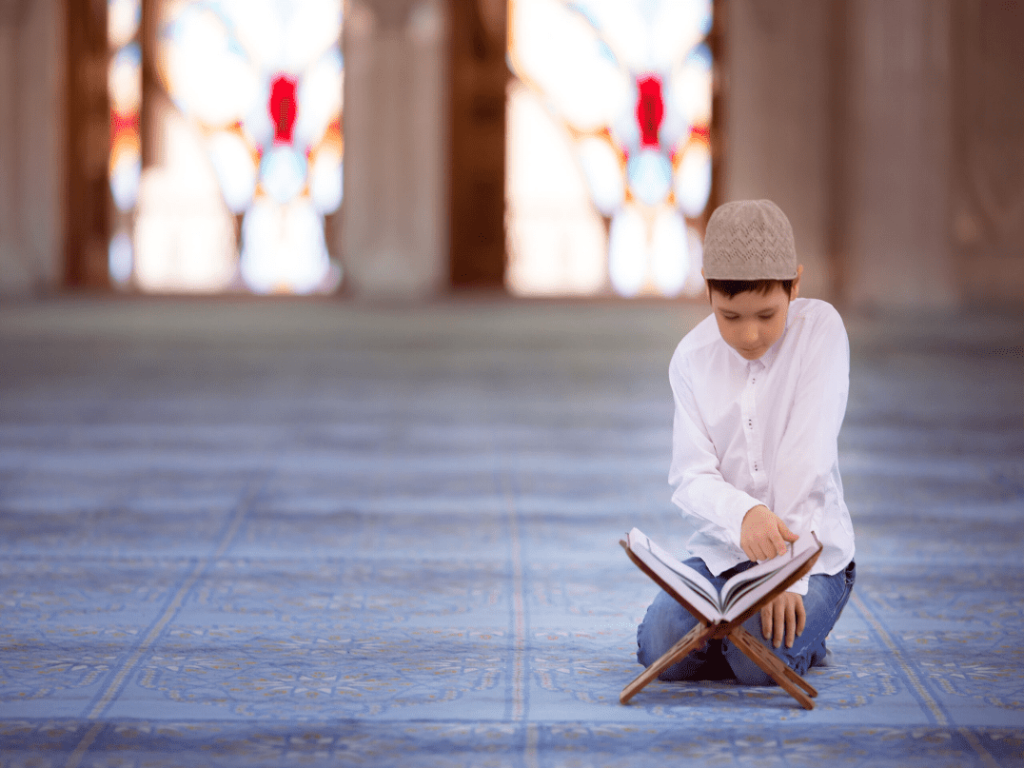Welcome to a journey of spiritual discovery! For Muslims worldwide, the Quran is more than just a book; it is the direct word of God, a source of guidance, wisdom, and immense blessings. Understanding the benefits of reading the Quran can transform one’s life, offering peace, clarity, and spiritual growth. Whether you’re interested in the profound benefits of reading the Holy Quran for adults, or seeking ways to introduce Quran for kids, this article will illuminate the countless rewards of engaging with this sacred text.
The Spiritual Rewards: Benefits of Reading the Quran
Reciting and reflecting upon the Quran brings a multitude of spiritual advantages for believers:
- Divine Reward (Hasanaat – حسنات): Every letter recited from the Quran brings forth blessings and rewards from Allah (God). The Prophet Muhammad (peace be upon him) said: “Whoever recites a letter from the Book of Allah, he will be credited with a good deed, and a good deed is multiplied tenfold.” This makes the act of reading a highly meritorious deed, accumulating immense spiritual credit.
- Inner Peace and Tranquility (سكينة – Sakinah): Engaging with the Quran calms the heart and mind. Its verses provide solace, comfort, and a sense of serenity amidst life’s challenges. The act of recitation itself can be deeply meditative.
- Guidance and Wisdom: The Quran serves as a comprehensive guide for all aspects of life – moral, ethical, social, and spiritual. It offers timeless wisdom, principles for living a righteous life, and answers to fundamental questions about existence.
- Closeness to Allah (SWT): Reading and understanding the Quran is a direct way to communicate with and feel closer to the Creator. It deepens one’s faith and strengthens the bond with the divine.
- Intercession on the Day of Judgment: The Prophet Muhammad taught that the Quran will intercede for its reciters on the Day of Judgment, advocating on their behalf. This highlights the immense long-term benefits of reading the Holy Quran.
- Healing and Cure (شفاء – Shifāʾ): The Quran is believed to be a source of spiritual and sometimes physical healing. Reciting certain verses or chapters is sought for recovery from illness, distress, and negative influences.
Practical and Personal Benefits: Benefits of Reading Quran Daily
Beyond the purely spiritual, consistently engaging with the Quran offers tangible personal improvements:
- Improved Memory and Focus: Regular recitation and memorization (Hifz) exercises the mind. It enhancing cognitive functions, memory retention, and concentration.
- Better Arabic Language Skills: For non-native speakers, reading the Quran is an excellent way to improve pronunciation (tajweed), vocabulary, and understanding of classical Arabic grammar. The unique flow and rhythm of the Quranic Arabic are unparalleled.
- Discipline and Consistency: Committing to daily Quranic recitation instills discipline and fosters a habit of regular spiritual engagement.
- Emotional Resilience: Understanding the Quran’s messages of patience, perseverance, and reliance on God can significantly boost one’s emotional and psychological resilience in times of adversity.
- Source of Motivation and Hope: The stories of prophets, the promises of reward, and the emphasis on God’s mercy within the Quran serve as powerful motivators and sources of hope for believers.
Introducing Quran for Kids: Nurturing Faith
Teaching Quran for kids is one of the most cherished acts for Muslim parents, offering profound long-term benefits of reading the Quran from a young age:
- Foundation of Faith: Early exposure to the Quran instills a strong foundation of Islamic faith, values, and morals from childhood.
- Moral Compass: The stories and teachings in the Quran guide children towards good character, honesty, respect, and kindness.
- Discipline and Routine: Learning to read and memorize the Quran introduces children to discipline, routine, and the joy of intellectual and spiritual achievement.
- Language Development: Arabic might not be their native tongue. However, exposure to Quranic Arabic helps develop linguistic skills, phonetic awareness, and an appreciation for the language.
- Community Connection: Learning Quran for kids often involves attending classes or study circles, fostering a sense of community and belonging among young Muslims.
- Parental Reward: Teaching one’s children the Quran is considered a continuous charity (Sadaqa Jariyah) for parents, even after their passing.
Embracing the Quranic Journey
The benefits of reading the Holy Quran are immense and transformative, encompassing spiritual blessings, personal development, and the nurturing of future generations. It is a source of light, guidance, and peace that continuously enriches the lives of those who engage with it.
Ready to embark on your journey with the Arabic language? Visit www.kaleela.com and download the Kaleela Arabic learning app today! Our comprehensive lessons are designed to help non-native speakers master Arabic, facilitating a deeper connection with the sacred text and the rich culture it represents.



